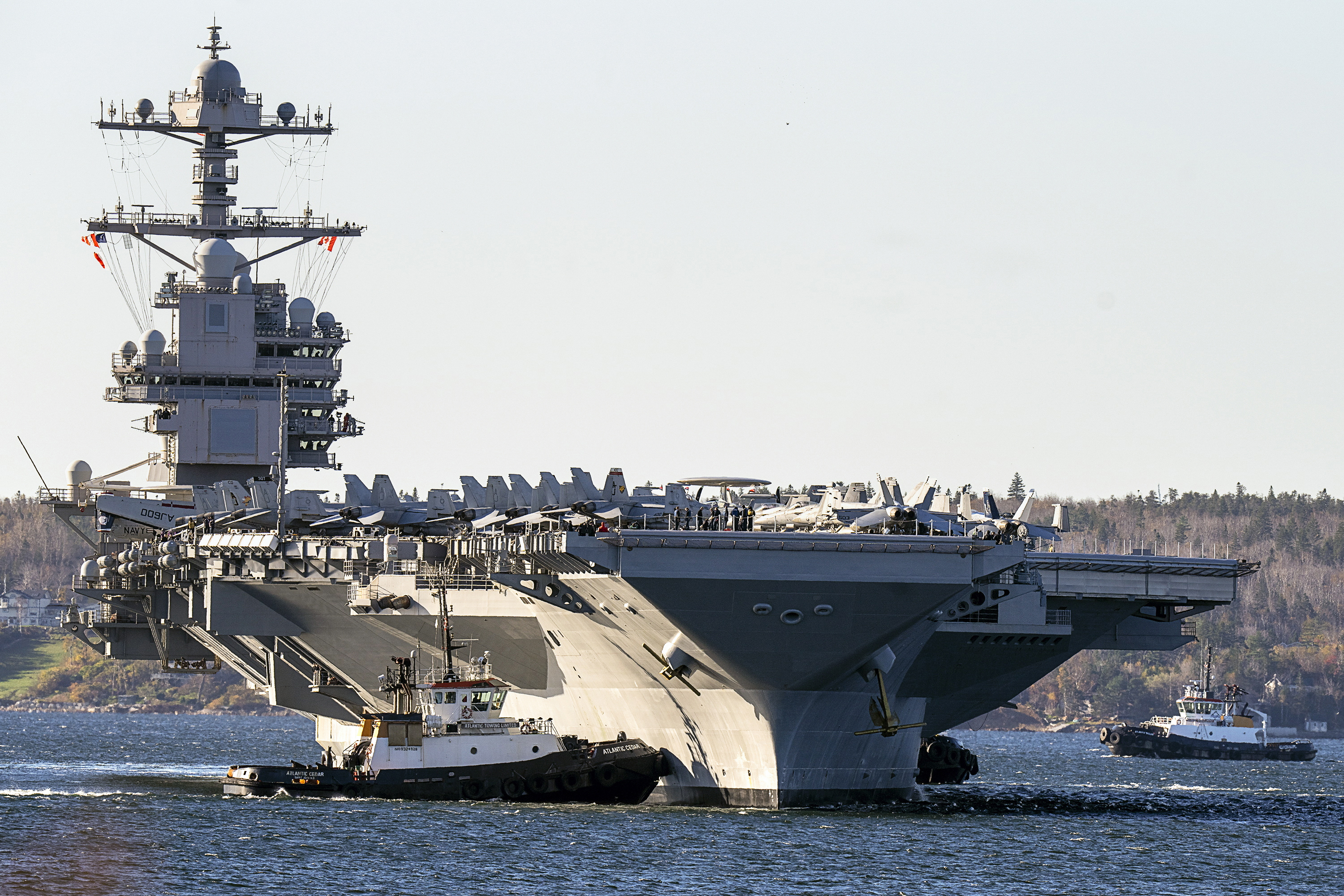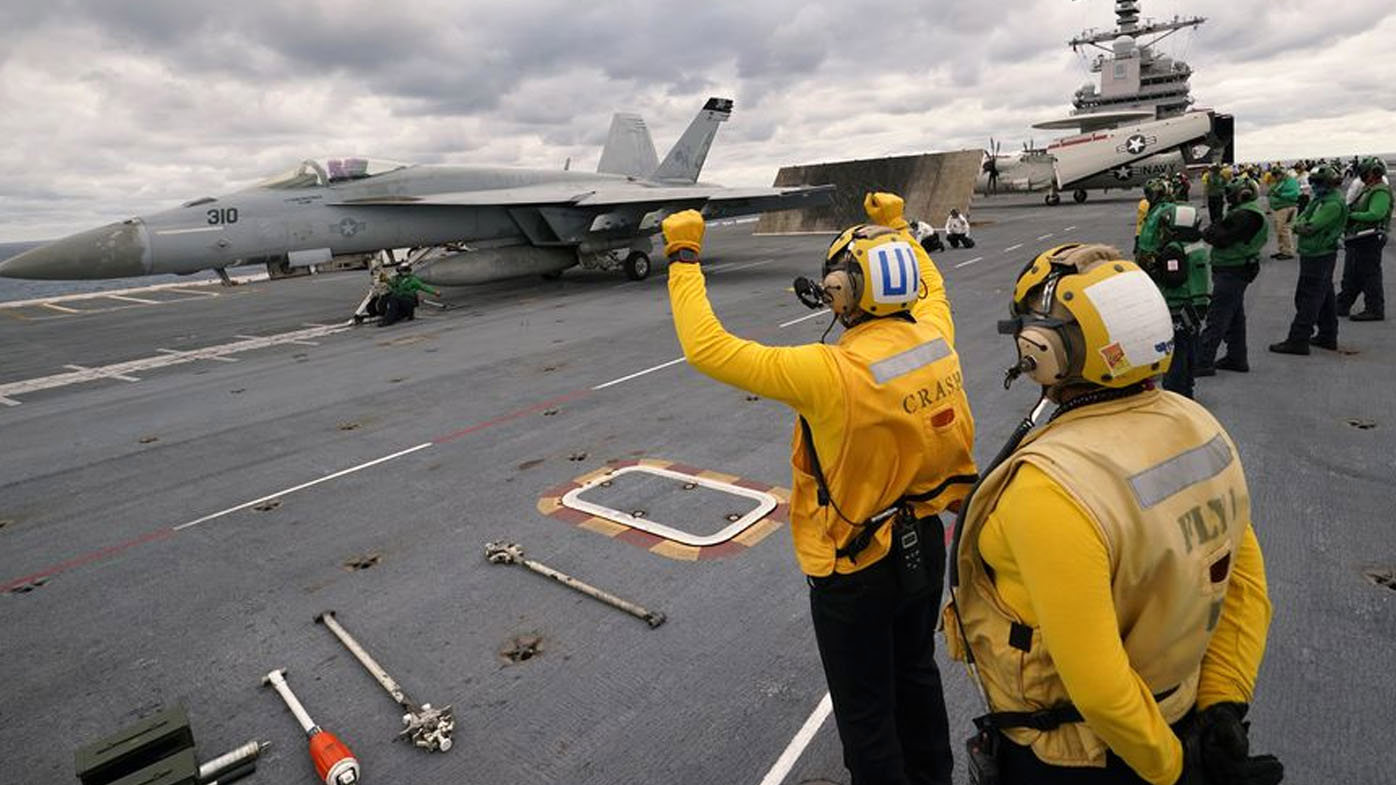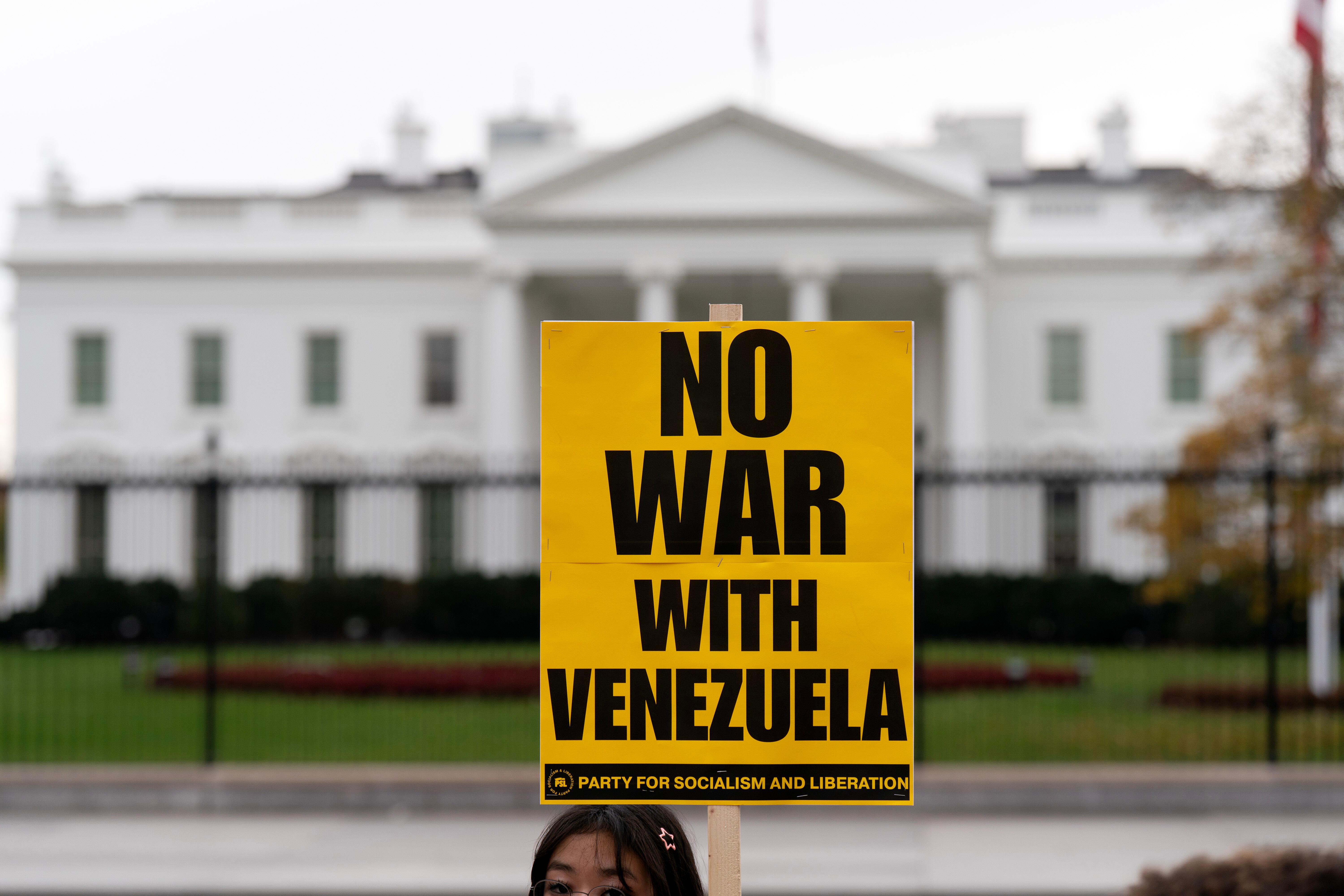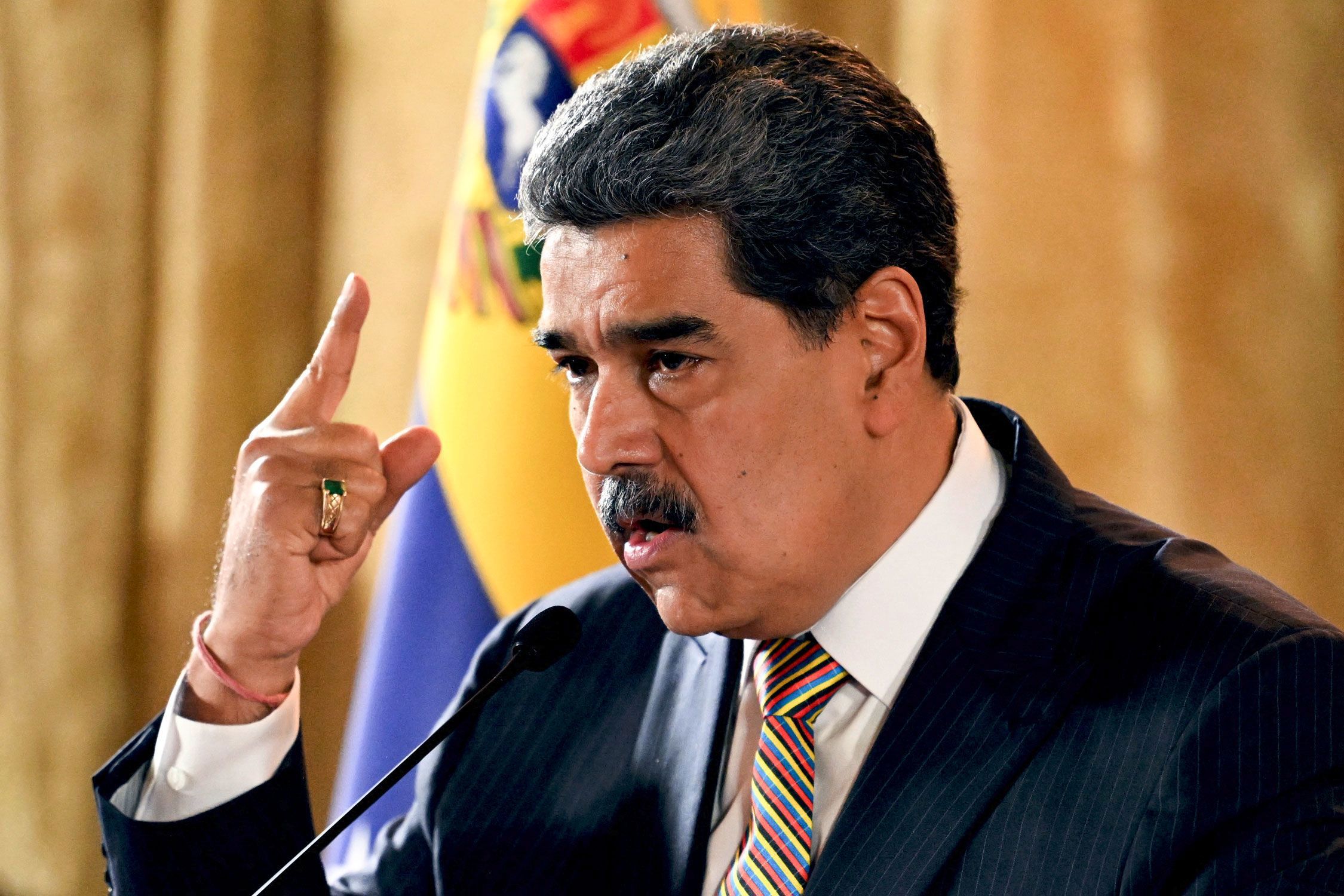The US Navy's most advanced aircraft carrier arrived in the Caribbean Sea on Sunday in a display of American military power, raising questions about what the new influx of troops and weaponry could signal for the Trump administration's intentions in South America as it conducts military strikes against vessels suspected of transporting drugs.
The arrival of the USS Gerald R. Ford and other warships, announced by the Navy in a statement, marks a major moment in what the administration insists is a counterdrug operation but has been seen as an escalating pressure tactic against Venezuelan President Nicolas Maduro.
Since early September, US strikes have killed at least 80 people in 20 attacks on small boats accused of transporting drugs in the Caribbean and eastern Pacific Ocean.
READ MORE: Trump has suggested he's made a decision on Venezuela military operations. Here's what we know


The Ford rounds off the largest build-up of US firepower in the region in generations. With its arrival, the Operation Southern Spear mission includes nearly a dozen Navy ships and about 12,000 sailors and US Marines.
The carrier strike group, which includes squadrons of fighter jets and guided-missile destroyers, transited the Anegada Passage near the British Virgin Islands on Sunday morning, the Navy said.
Admiral Alvin Holsey, the commander who oversees the Caribbean and Latin America, said in a statement that the American forces "stand ready to combat the transnational threats that seek to destabilise our region."
Holsey, who will retire next month after just a year on the job, said the strike group's deployment is "a critical step in reinforcing our resolve to protect the security of the Western Hemisphere and the safety of the American Homeland."
In Trinidad and Tobago, which is only 12km from Venezuela at its closest point, government officials said troops have begun "training exercises" with the US military that will run through much of the week.
READ MORE: 'Traitor': Trump launches blistering attack on Marjorie Taylor Greene

Minister of Foreign Affairs Sean Sobers described the joint exercises as the second in less than a month and said they are aimed at tackling violent crime on the island nation, which has become a stopover point for drug shipments headed to Europe and North America. The prime minister has been a vocal supporter of the US military strikes.
Venezuela's government has described the training exercises as an act of aggression. It had no immediate comment on Sunday about the arrival of the aircraft carrier.
The Trump administration has insisted that the build-up of American forces in the region is focused on stopping the flow of drugs into the US, but it has released no evidence to support its assertions that those killed in the boats were "narcoterrorists."
Trump has indicated military action would expand beyond strikes by sea, saying the US would "stop the drugs coming in by land."
READ MORE: Looming vote in the US marks crucial moment for Epstein files

US Secretary of State Marco Rubio says his country does not recognise Maduro, who was widely accused of stealing last year's election, as Venezuela's legitimate leader. Rubio has called Venezuela's government a "transshipment organization" that openly cooperates with those trafficking drugs.
Maduro, who faces charges of narcoterrorism in the US, has said the American government is "fabricating" a war against him. On his Facebook page, Maduro wrote on Sunday that the "Venezuelan people are ready to defend their homeland against any criminal aggression."
Trump has justified the attacks on drug boats by saying the US is in "armed conflict" with drug cartels while claiming the boats are operated by foreign terrorist organisations.
DOWNLOAD THE 9NEWS APP: Stay across all the latest in breaking news, sport, politics and the weather via our news app and get notifications sent straight to your smartphone. Available on the Apple App Store and Google Play.
from 9News https://ift.tt/TkdAuE7
via IFTTT
Comments
Post a Comment